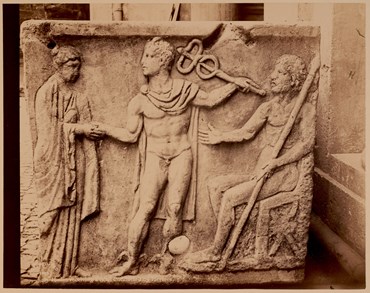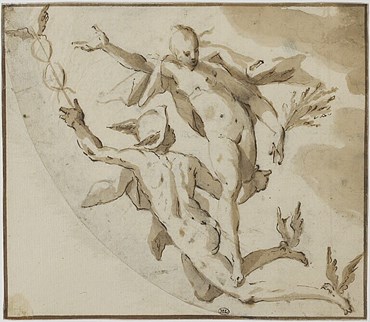Hermes
Hermes was the messenger of the gods, but his resume truly makes him a jack and master of all trades. He protected herds and flocks, looked after travellers, guarded roads, took care of heralds, merchants, and thieves, and served as the patron god of diplomacy, athletic contests, gymnasiums, and the hospitality industry. In the Homeric Hymn to Demeter, Hermes is introduced as the Argus-killer. Argus was a hundred-eyed giant who killed the serpent-legged monster Echidna. Hera also set him to guard the white heifer Io against Zeus in a futile attempt to prevent him from sleeping with her. Hermes killed Argus and set Io free. Before the rape of Persephone, nobody could enter (let alone exit) the Underworld, except for Hermes. After all, it was his duty to conduct the souls of the dead to the world below. Zeus used Hermes to send messages to Hades (while Iris served as his messenger to Demeter, who resided in the world above). Hermes rushed full speed beneath the depths of the earth and informed Hades that he had to release Persephone. He then accompanies her back to earth and her mother. The Eleusinian rites preserved the memory of this profound event by having Hermes preside over Persephone’s annual return.

Hades receiving a soul conducted by Hermes, Sarah Amelia Scull, ca. 1889, photograph, Boston Public Library © Boston Public Library

Mercury and Ceres flying in the air, Hans von Aachen, ca. 1552-1615, engraving, Musée du Louvre © Musée du Louvre, dist. RMN-Grand Palais - Photo M. Beck-Coppola






